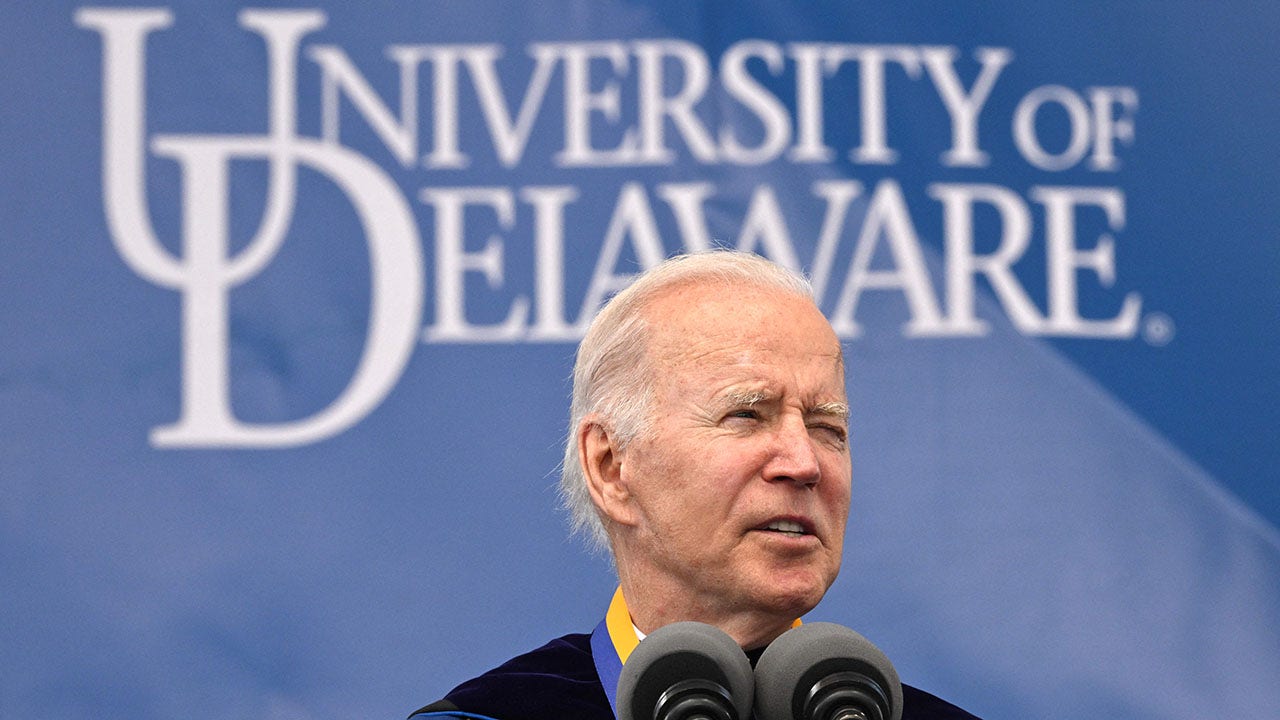Delaware Governor Calls Out Fascism In Post-Trump, Post-Biden Era

Table of Contents
The Governor's Specific Concerns Regarding Fascism in America
The Governor's statement highlights several key areas of concern reflecting a growing threat to American democracy. These concerns represent a complex challenge requiring immediate and sustained attention.
Erosion of Democratic Norms
The Governor rightly points to a significant erosion of democratic norms. This erosion manifests in several disturbing trends:
- Increased Political Polarization: The nation is deeply divided, with political discourse increasingly characterized by hostility and a lack of common ground. This polarization makes constructive compromise and effective governance extremely difficult.
- Spread of Misinformation: The proliferation of false and misleading information, often spread through social media and other online platforms, undermines informed public discourse and erodes trust in legitimate institutions. This disinformation campaign actively works to destabilize democracy.
- Attacks on the Free Press: Journalists and news organizations face increasing harassment, threats, and even violence. These attacks seek to silence dissenting voices and control the narrative.
- Voter Suppression Efforts: Various tactics, from restrictive voter ID laws to gerrymandering, aim to limit access to the ballot box, disproportionately affecting marginalized communities.
- Challenges to Election Integrity: Repeated, unsubstantiated claims of election fraud undermine public confidence in the electoral process and threaten the legitimacy of democratic governance.
These actions, taken together, represent a concerted effort to weaken democratic institutions and norms, paving the way for authoritarianism. The consequences of ignoring these threats are severe, potentially leading to political instability and violence.
Rise of Extremist Groups and Ideologies
The Governor also expressed deep concern about the rise of extremist groups and ideologies within the United States. This includes:
- Growth of White Supremacist Movements: These groups actively promote hate speech, violence, and discriminatory practices, posing a direct threat to the safety and well-being of minority communities. Their numbers and influence are growing, fueled by online radicalization.
- Anti-Government Militias: These armed groups often express anti-government sentiments and engage in acts of intimidation and violence, further destabilizing the political landscape. Their increasing organization and access to weapons present a significant security risk.
- Other Far-Right Groups: A range of far-right extremist groups, each with their own specific agendas, contribute to the overall climate of fear and intolerance. The rise of these groups demonstrates the fragility of our democratic system.
- Increased Online Radicalization: Social media platforms and online forums have become breeding grounds for extremist ideologies, allowing for rapid dissemination of hate speech and recruitment of new members.
The rise of these groups underscores the need for stronger counter-extremism strategies and a renewed commitment to combating hate and intolerance.
Political Discourse and the Role of Leadership
The Governor's statement implicitly criticizes the role of past administrations in addressing – or failing to address – the rise of extremism. Key aspects include:
- Analysis of Past Administrations' Responses (or Lack Thereof): The Governor likely points to instances where rhetoric and actions from previous administrations either inadvertently fueled extremism or failed to adequately confront it.
- The Role of Rhetoric in Fueling Polarization: Highly divisive political rhetoric can exacerbate existing tensions and create an environment where extremist views are more easily accepted.
- The Importance of Responsible Leadership in Countering Fascism: Strong, decisive leadership is essential in condemning extremism, promoting unity, and defending democratic values.
The Governor’s call for responsible leadership emphasizes the crucial role that political leaders play in shaping the national discourse and setting the tone for political engagement. Failure to condemn extremism explicitly emboldens those who would undermine democratic norms.
The Context of the Governor's Statement
The Governor's statement did not emerge in a vacuum. Several factors contributed to its timing and urgency.
Recent Events Triggering the Statement
Several recent events, such as specific legislative actions, court decisions, and instances of political violence, may have prompted the Governor to issue this strong condemnation. Analyzing these events provides valuable context for understanding the urgency of the situation. For example, the rise of election-related violence is directly connected to the undermining of faith in democratic processes.
Delaware's Unique Position and Vulnerabilities
While the threat of fascism is national, Delaware’s unique position and vulnerabilities must be considered. Analyzing Delaware’s demographic makeup, political landscape, and potential susceptibility to extremist infiltration is vital for developing effective countermeasures. Understanding local nuances enhances the effectiveness of preventative strategies.
Potential Solutions and Pathways Forward
Addressing the rise of fascism requires a multifaceted approach.
Combating Misinformation and Promoting Media Literacy
Combating the spread of misinformation is paramount. This requires:
- Strengthening Fact-Checking Initiatives: Investing in independent fact-checking organizations and promoting their findings widely.
- Media Literacy Education: Equipping citizens with the skills to critically evaluate information sources and identify misinformation.
- Platform Accountability: Holding social media companies accountable for the spread of misinformation on their platforms.
Strengthening Democratic Institutions and Processes
Strengthening democratic institutions is essential to prevent further erosion of democratic norms:
- Electoral Reform: Implementing measures to ensure fair and accessible elections, including modernizing voting systems and combating gerrymandering.
- Campaign Finance Reform: Addressing the influence of money in politics to reduce corruption and promote fairer elections.
- Protecting Voting Rights: Safeguarding the right to vote for all eligible citizens, regardless of race, ethnicity, or socioeconomic status.
- Improving Civic Education: Investing in civic education programs to promote informed citizenship and participation in the democratic process.
Promoting Inclusive Dialogue and Reconciliation
Bridging political divides is crucial for fostering social cohesion:
- Promoting Constructive Dialogue: Creating spaces for open and respectful dialogue across political divides, even in the face of strong disagreement.
- Supporting Civil Society Organizations: Investing in organizations that promote social cohesion and community building.
- Encouraging Empathy and Understanding: Promoting empathy and understanding between different groups to combat intolerance and division.
Conclusion
The Delaware Governor's warning about the rise of fascism in a post-Trump, post-Biden era is a serious and timely call to action. The erosion of democratic norms, the rise of extremist groups, and a climate of political polarization pose grave threats to American democracy. Combating this requires a multi-pronged approach: media literacy initiatives, strengthened democratic institutions, and a commitment to inclusive dialogue. Ignoring these warning signs would be a grave mistake. We must all actively participate in safeguarding our democracy and preventing the further spread of Delaware Governor Fascism. Let's hold our leaders accountable and demand action to protect our shared future. Learn more about how you can fight the rise of fascism and participate in protecting our democratic values.

Featured Posts
-
 Jadwal Lengkap Moto Gp Inggris 2024 Jangan Lewatkan Aksi Para Pembalap
May 26, 2025
Jadwal Lengkap Moto Gp Inggris 2024 Jangan Lewatkan Aksi Para Pembalap
May 26, 2025 -
 Spectator Spitting At Van Der Poel 300 Fine No Further Action
May 26, 2025
Spectator Spitting At Van Der Poel 300 Fine No Further Action
May 26, 2025 -
 La Morale Publique Selon Enthoven Le Pen Et Ramadan Dans Le Viseur
May 26, 2025
La Morale Publique Selon Enthoven Le Pen Et Ramadan Dans Le Viseur
May 26, 2025 -
 Analysis The Trump White House And The Nippon U S Steel Transaction
May 26, 2025
Analysis The Trump White House And The Nippon U S Steel Transaction
May 26, 2025 -
 La Reponse De Thierry Ardisson A Laurent Baffie Essaie De Parler Pour Toi
May 26, 2025
La Reponse De Thierry Ardisson A Laurent Baffie Essaie De Parler Pour Toi
May 26, 2025
